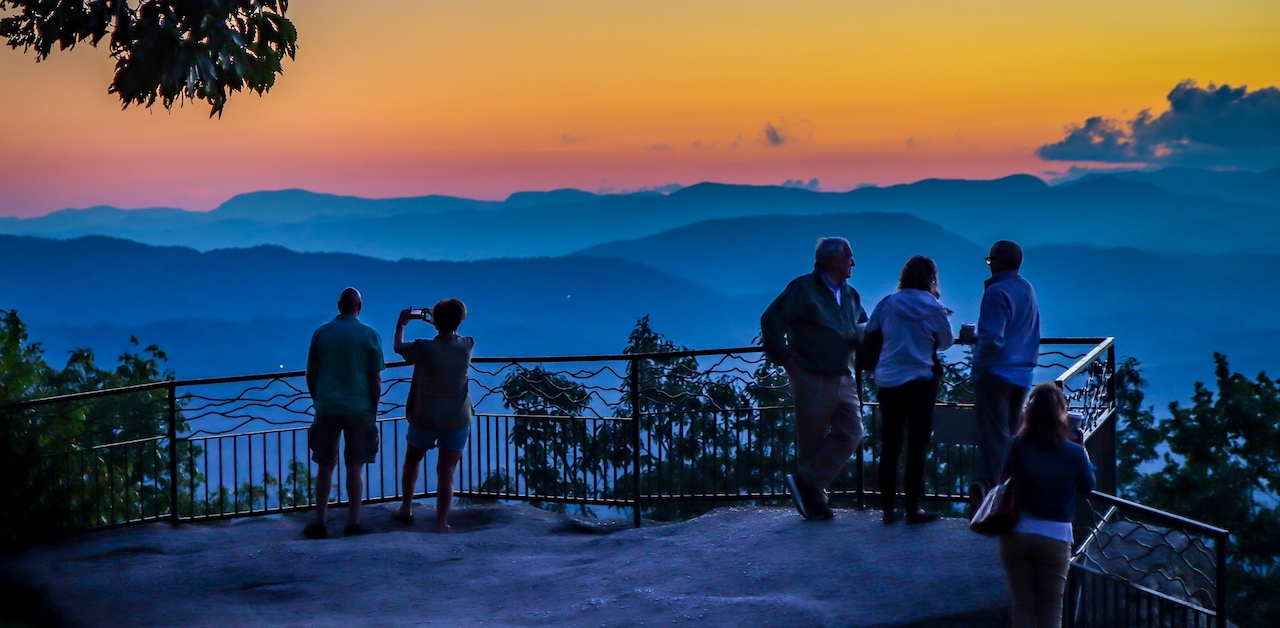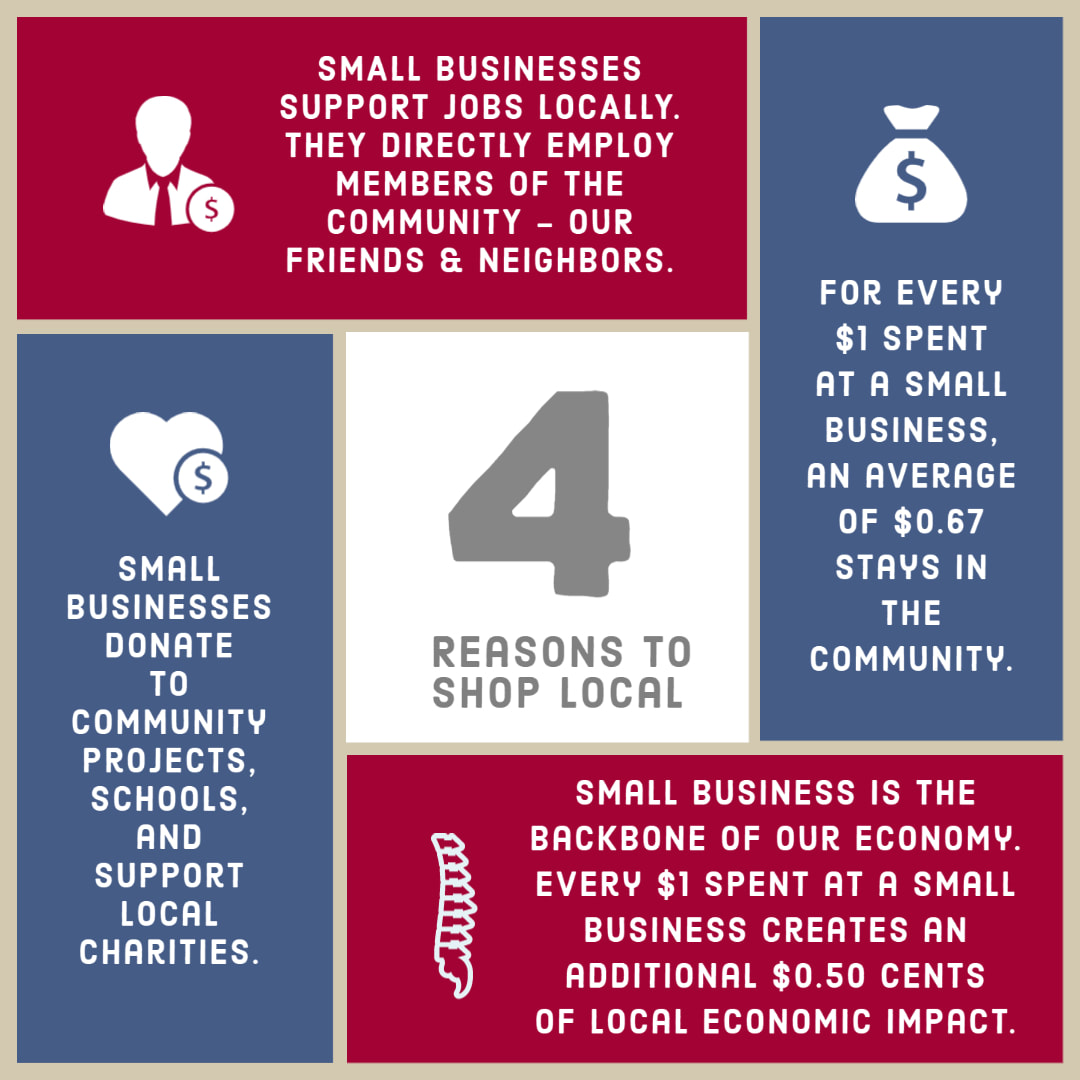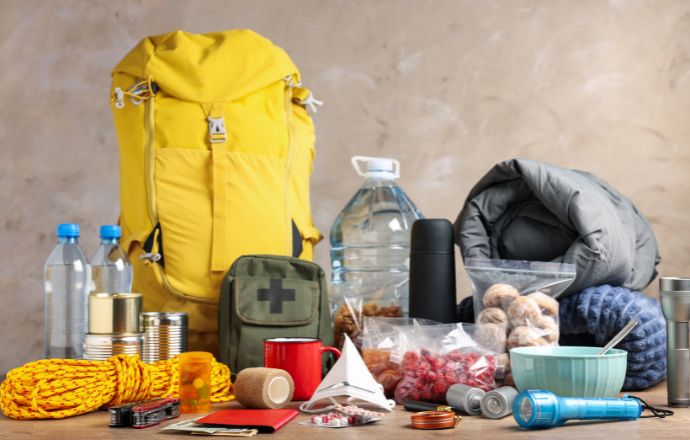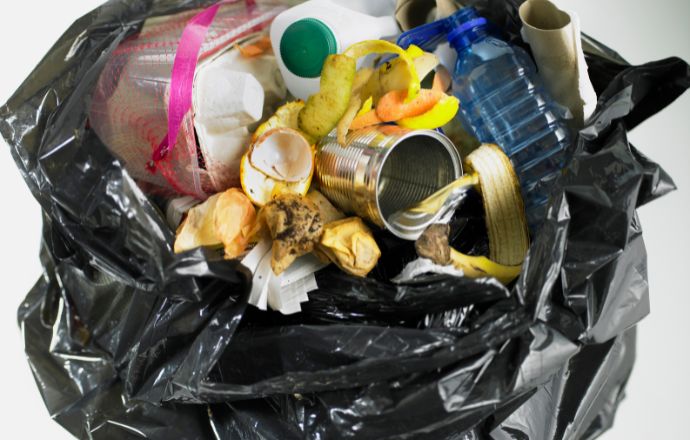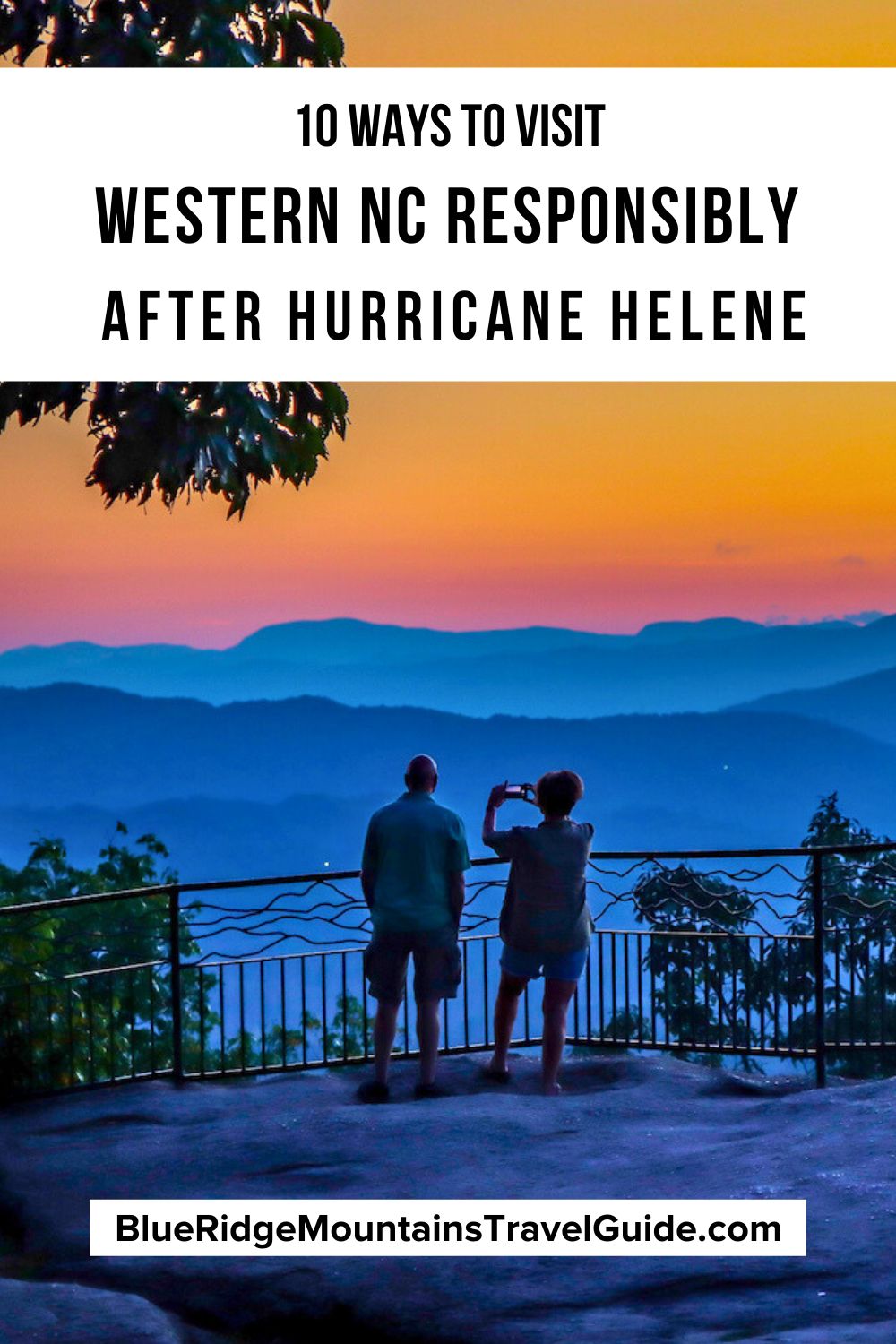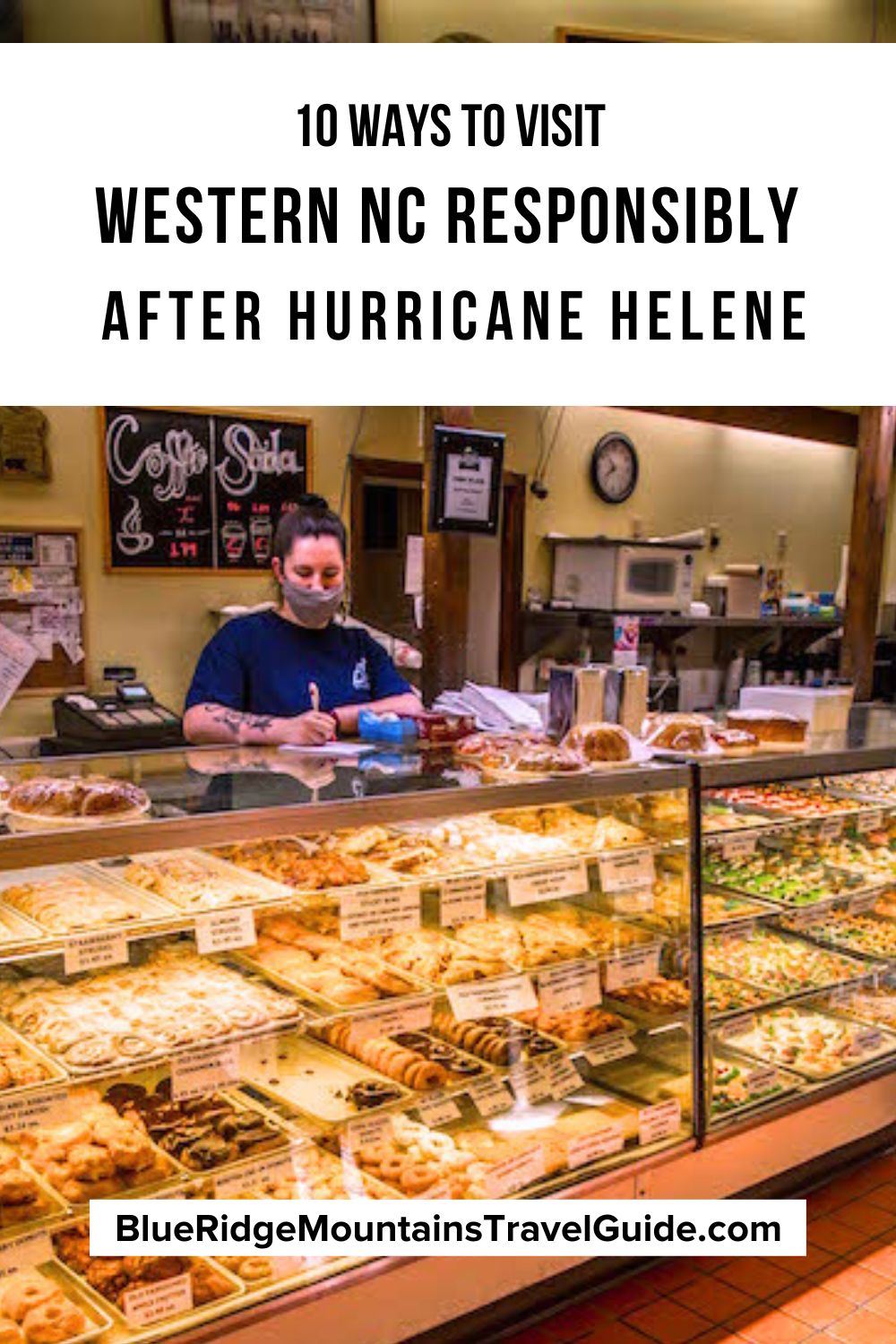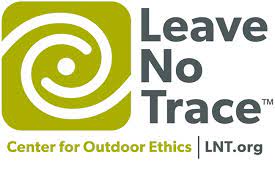In my 7 years of living in Western North Carolina, I’ve survived two 100-year storms (see: 10 inches of rain in less than a day), a 5.1-magnitude earthquake, and a 20-inch snow blizzard.
With each new dramatic weather phenomenon, I’m brought back to what a local excavator operator said as he stared at our new, possibly undersized spillway: “I’ve seen the weather in these mountains do some crazy things!”
Hurricane Helene surpassed all the climate change-related disasters I’ve seen up to now.
While my home near Elkin NC thankfully made it through the storm with only minor blemishes, so many people and places I love were devastated.
It has been extremely difficult to see the news reports. It’s been tough to avoid some of my favorite places—Boone, the Blue Ridge Parkway, Asheville, Pisgah National Forest— while waiting until it was safe to visit them again.
Now that much of WNC is reopening (and practically BEGGING tourists to come), I’m anxious to visit and support their recovery with my dollars. But, like everyone else, I want to do it the right way, creating a positive impact.
Read on for our in-depth guide to visiting Western NC responsibly after Hurricane Helene, including 10 simple tips I’ve learned from more than a decade as a responsible travel specialist.
READ MORE: NC Mountain Towns That Are Officially Open to Visitors
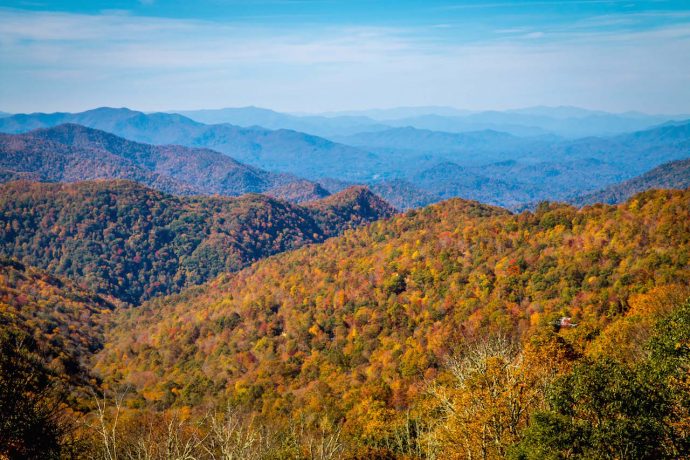
Visit Western NC Responsibly After Helene Guide
- Make Sure the Town Is Ready to Welcome Visitors
- Don’t Visit Areas That Are Still in Recovery
- Shop/Dine/Stay at Locally Owned Businesses
- Don’t Be a Looky-Loo at Disaster Areas
- Consider Donating to Charities Helping Victims of the Storm
- Bring Items That May Be in Short Supply Locally
- Check for Road Closures and Other Issues
- Reduce, Reuse, Recycle
- Be Patient with Business Getting Back on Their Feet
- Recreate Thoughtfully
READ MORE: The 10 Best Small Towns Near Asheville NC
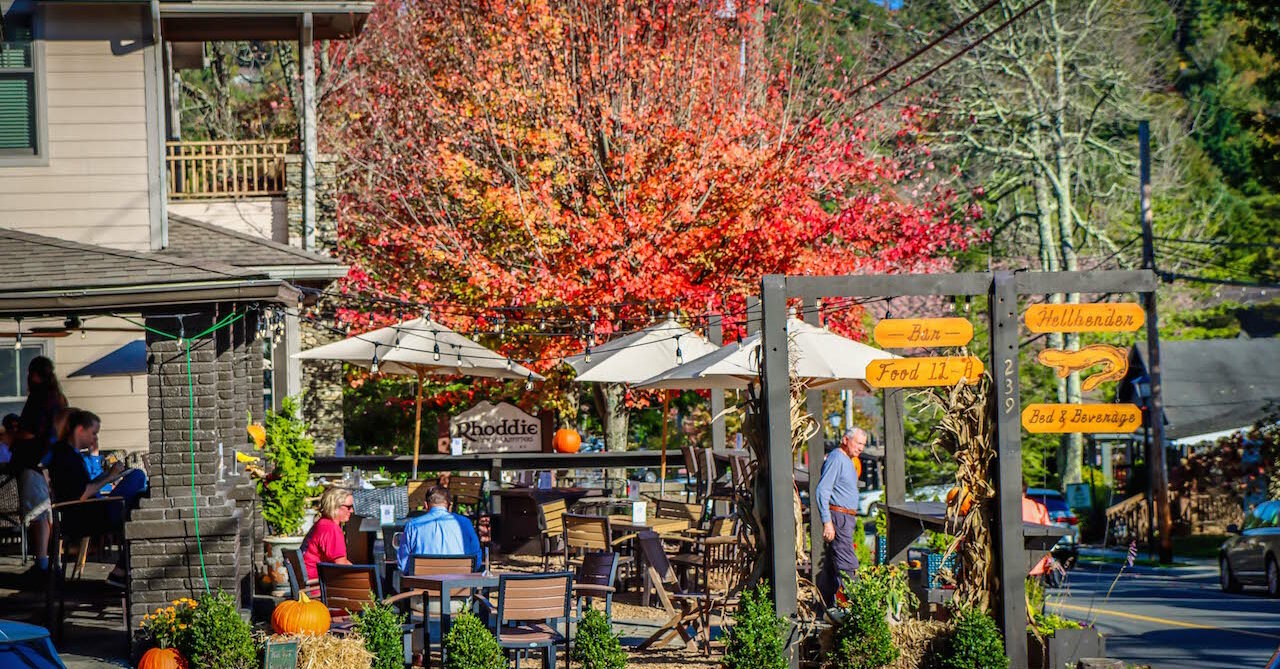
1. Make Sure the Town Is Ready to Welcome Visitors
It’s exciting for locals and travelers alike that lots of places in WNC are opening back up just in time to catch Fall colors and enjoy NC Christmas events.
In my experience, there’s nothing quite like Fall and the holiday season in these small, charming NC mountain towns.
They are desperately yearning for us to visit, because tourism during this time of year is tremendously important for the local economy. So it’s a very good time to visit those Western NC towns that are officially.
But before planning a trip, it’s important to make sure the town is OFFICIALLY ready to welcome visitors.
Be sure to check Visit NC travel advisories to see what’s open, follow BRMTG’s Facebook page for official reopening announcements, and check the destination’s website/social media for pertinent info visitors might need to know.
READ MORE: The 15 Best Christmas Towns in North Carolina
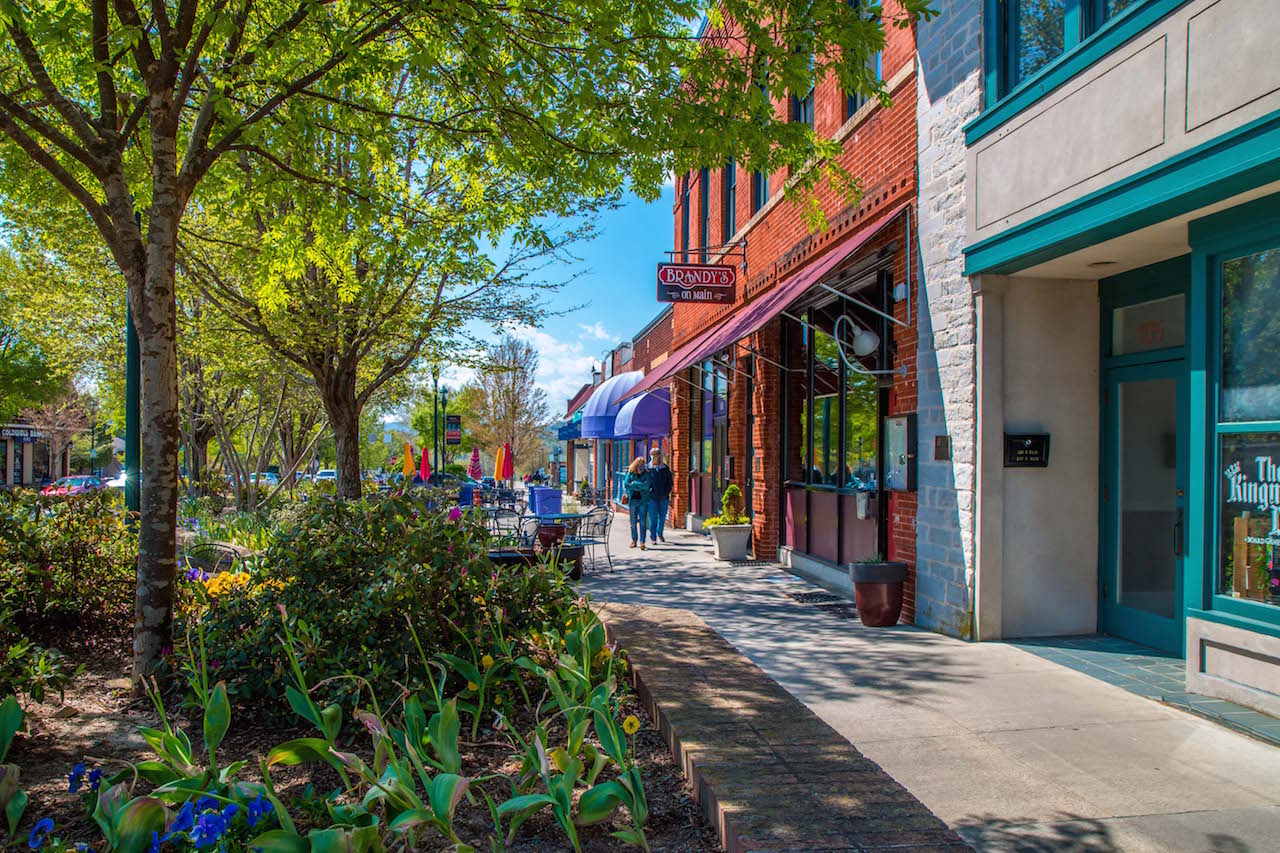
2. Don’t Visit Areas That Are Still in Recovery
While there are nearly 50 North Carolina mountain towns that are welcoming back visitors, many are still in recovery and struggling day-to-day.
However much we may love these towns and want to support them in-person, it’s important to leave them be until visitors are OFFICIALLY invited back.
If the town (or park) isn’t ready for tourists, our presence can impede the efforts to make the life of locals functional. Remember that no one wants a town to open up again more than the people who live there!
It’s important to give them the space to make that happen, and to get their lives back in order. That’s the best way we can help in times of crisis.
READ MORE: 10 Great Train Rides in North Carolina
3. Shop/Dine/Stay at Locally Owned Businesses
When these places do welcome us back, it’s vital that we shop, dine, and stay in locally-owned businesses.
Spending our $$$ at small, locally run companies helps to keep the majority our tourist dollars in the town, where they’re desperately needed.
What’s better than a local restaurant to get the flavors of a region? What better souvenir is there than something produced by local artists or craftspeople?
Who knows more about what to do than the cabin/hotel-owning locals, who love the place?
Important Note: Some local hotels are currently housing victims of the storm,. So be sure to check the status of the place where you want to stay before showing up and looking for hotels to stay in.
READ MORE: Help Western NC Stores by Shopping Online: Haywood County

4. Don’t Be a Looky-Loo at Disaster Areas
The devastation from Hurricane Helene was felt throughout the Blue Ridge Mountains of North Carolina.
But some places—particularly those near overflowing rivers and mudslides—saw even more severe damage. Places like Swannanoa and Asheville’s River Arts District are still disaster areas, nearly 5 weeks later!
Those areas are littered with the remains of homes that were washed right off their foundations, roadways that dropped off the side of mountains, and people who are genuinely hurting.
In other words, these are places that some people might be tempted to cruise through to have a look.
Please save that for the North Carolina Waterfalls, Christmas Train Rides, and Christmas Light Shows that are truly begging to be seen, and gave these areas time to heal.
READ MORE: Christmas Town USA: 10 Ways to Celebrate in McAdenville NC
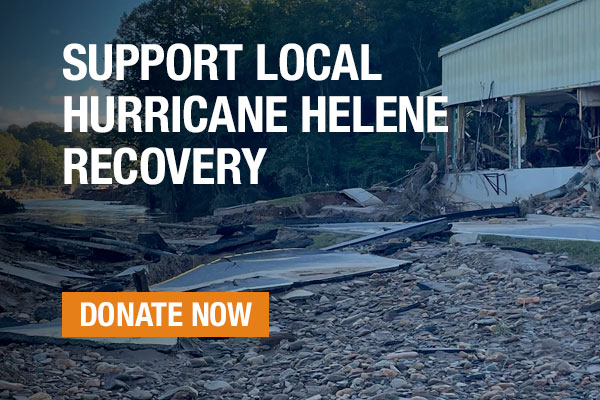
5. Consider Donating to Charities Helping Victims of the Storm
Whether we visit or not (but especially if we DO visit), now is the time to consider donating to the trustworthy charities that are helping the victims of Hurricane Helene recover.
Recent estimates suggest the storm caused $56 BILLION in damage to the region, with some 126,000 homes affected or completely obliterated.
Along with FEMA and the National Guard, there are hundreds of charities helping Western NC to recover and rebuild. They’re working on severe water problems, rehousing displaced people, clearing debris, and keeping people fed.
There are loads of information and lists out there for us to choose from, and now is the time to support recovery efforts.
READ MORE: Non-Profits Helping with Helene Relief in Western NC
6. Bring Items That May Be in Short Supply Locally
It’s important to keep in mind that supply chains in Western North Carolina have been disrupted so badly that some necessities are difficult to get. Even safe running water and electricity are hit-or-miss in some areas.
As we travel to the Blue Ridge Mountains of NC, we need to make sure that we aren’t taking supplies that would be better used by locals.
Before your visit these small towns, fill up the car with gas, stock some extra drinking water in the trunk, and carry some groceries in from home if you aren’t planning on eating out.
While these places may be welcoming back visitors, they need us to provide a boost to the local economy, not drain the supplies that local households are looking for.
READ MORE: 20 Incredible Places To See the Blue Ridge Mountains in Fall
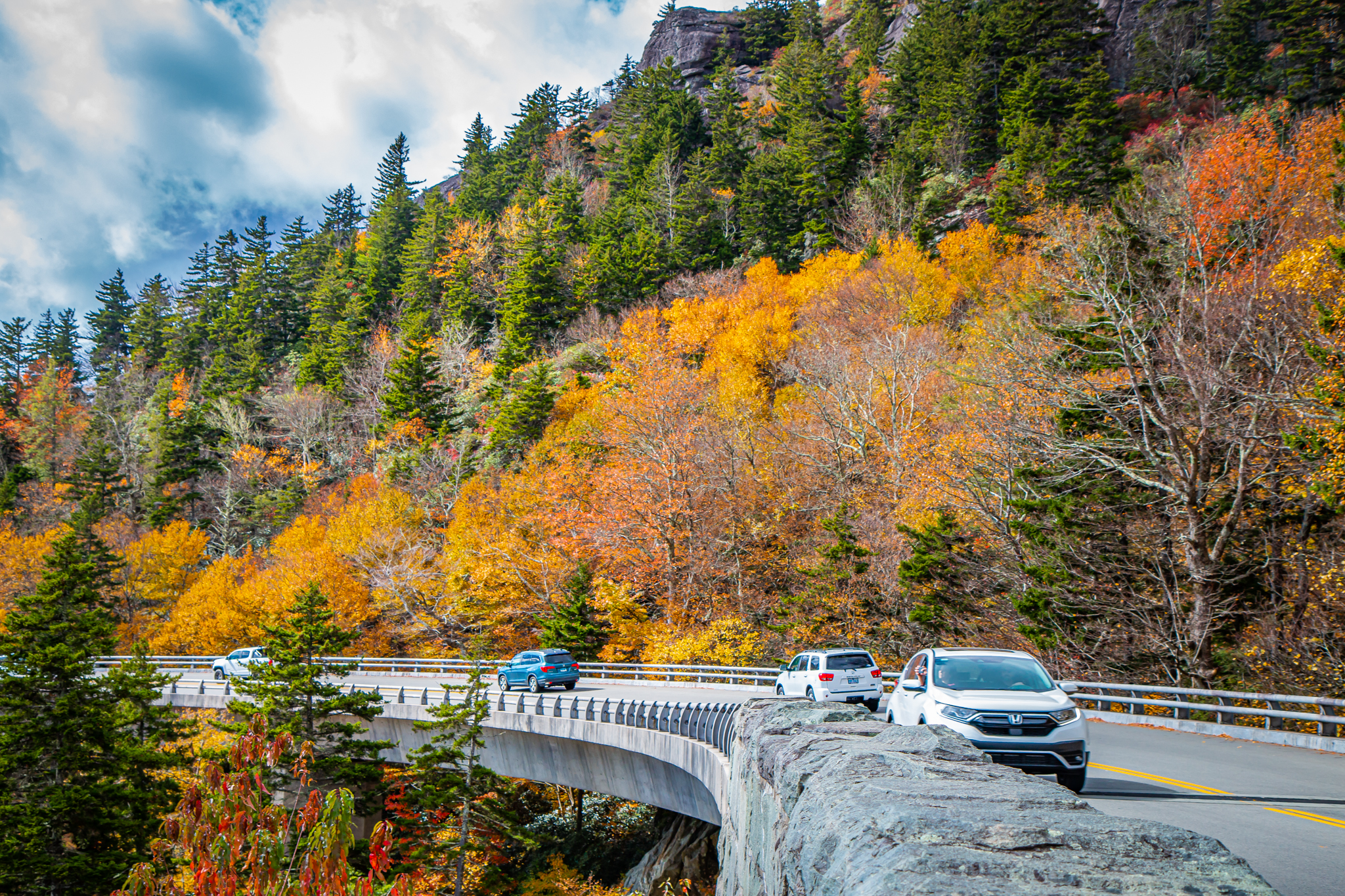
7. Check for Road Closures and Other Issues
Just like some WNC towns still need time to recover, many local roadways (including major routes like I-40) are in states of disrepair that will not allow locals or visitors to use them.
Some North Carolina State Parks (including Mount Mitchell and 7 others as of 11/2/24) are littered with downed trees and unable to handle guests at this point.
Before taking your usual route to a favorite NC hiking trail, it’s a good idea to check DriveNC.gov, the official website for road closures, alternate routes, and other issues.
First of all, unwanted traffic can really slow down recovery efforts, and discovering that a road or trail is closed when you get there can really dampen the spirit of a trip!
READ MORE: The Best Hiking in Asheville NC Bucket List (Top 25 Hiking Trails)
8. Reduce, Reuse, Recycle
Trash is a MAJOR problem in Western North Carolina right now.
Not only did those raging rivers and creeks cause massive destruction, but they also eventually subsided and left debris everywhere, from homes and campers to cars and other litter.
When we visit NC, doing our best to reduce the amount of trash we normally create, reusing, and recycling, has never been more important for the region. Dozens of industrial-sized dump trucks are carrying garbage away every day.
If possible, consider keeping a trash bag in the car. Then you can take it away with you when you leave, so you don’t put more burden on local trash collectors and landfills!
READ MORE: The 15 Best Places for Glamping in the Blue Ridge Mountains (GA, NC, TN, VA)
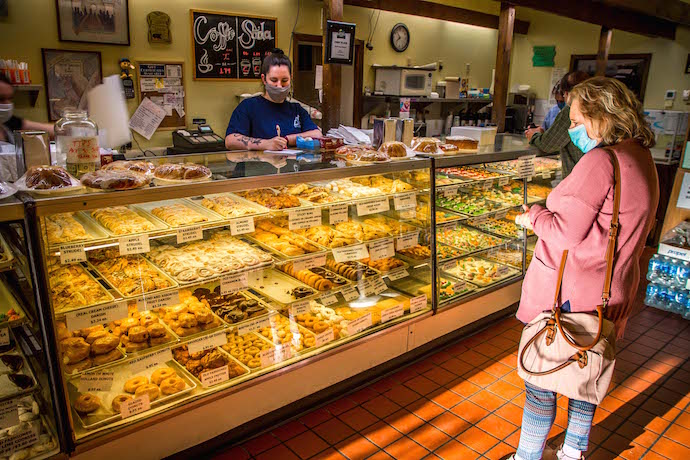
9. Be Patient with Businesses Getting Back on Their Feet
Even in Blue Ridge Mountain towns that have opened up, many small businesses are still just getting back on their feet, reestablishing supplies, refurbishing equipment, and remodeling spaces.
So it’s important to understand that they might not be the way we remember them just yet. Menus may be limited, lines may be long, and service may be a little slower than usual.
We have to be patient with businesses that are trying hard to get their employees back to work and make their lease payments.
They’re doing the best they can in a difficult situation, and many are open as they work their way through the troubles.
So, head into the small towns of North Carolina with the slow-moving, easy-going attitude they represent, and treat everyone with as much grace and gratitude as you can muster!
READ MORE: The 20 Best Downtown Asheville Restaurants for Foodies
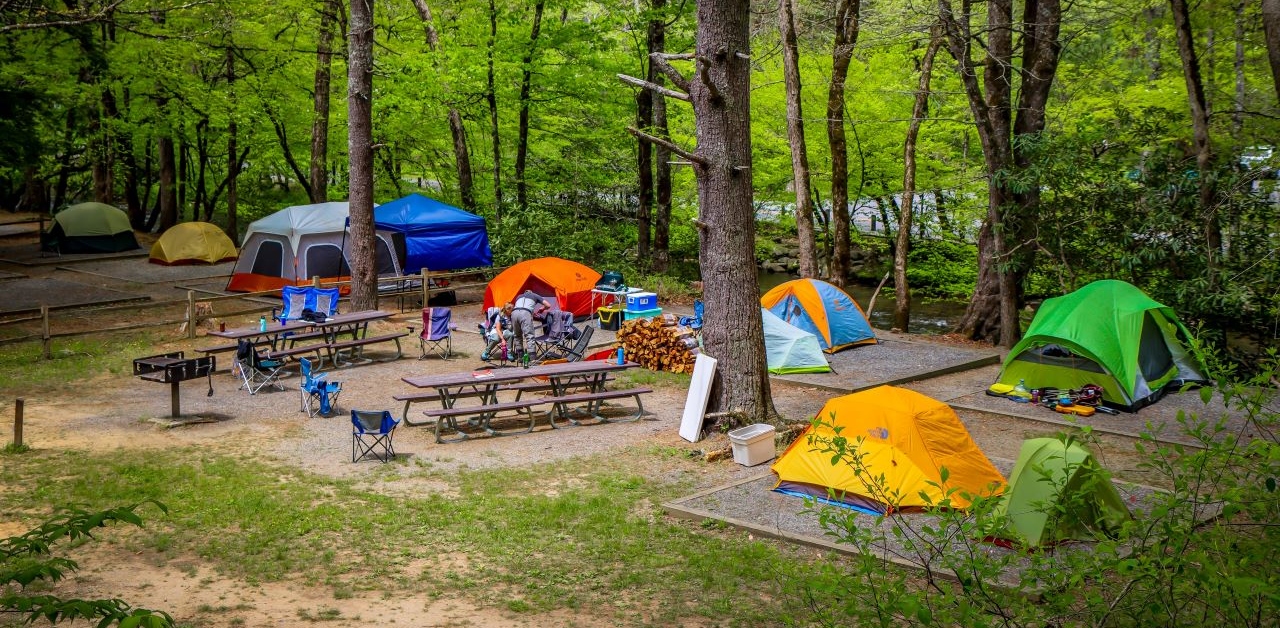
10. Recreate with Forethought and Respect
The Blue Ridge Mountains and Western North Carolina are beloved for their natural beauty, and a collection of magical parks that allow us to witness it.
Outdoor recreation is undoubtedly one of the biggest draws to the region.
While being responsible in North Carolina national parks and forests is always a must-do, it’s even more important in the wake of a natural disaster.
Be sure to “know before you go” by checking for closures, fire restrictions, and so on. Especially if you’re considering driving the recently reopened sections of the Blue Ridge Parkway in North Carolina.
The NPS has put together a great guide for recreating responsibly to help the park/forestry service in their efforts to get attractions up and running again. -by Jonathon Engels; featured image by Bret Love & Mary Gabbett

